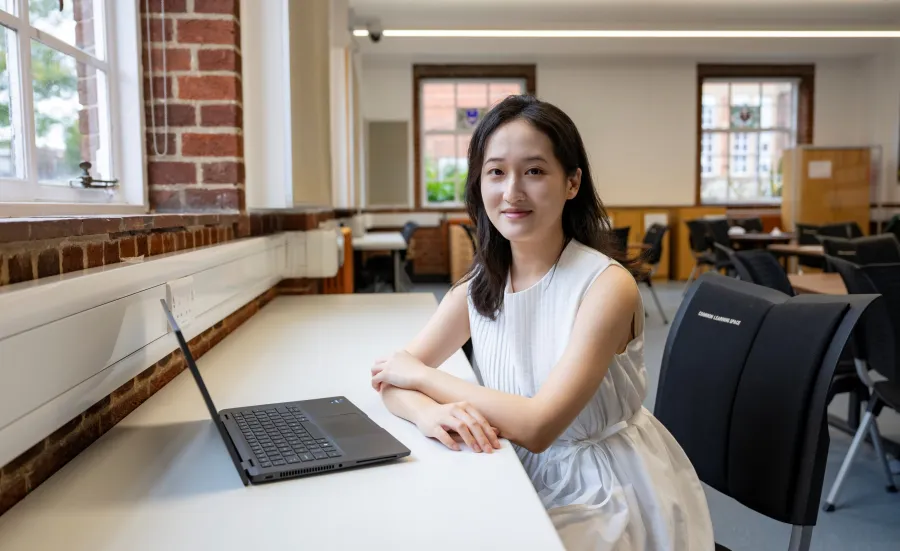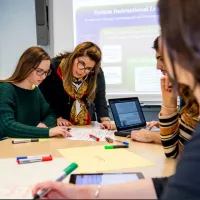When Lin majored in pre-school education as an undergraduate in China, everyone assumed she would become an early years teacher. However, she was keen to explore more options.
A journey of self-discovery
For me, starting the master’s degree was really a journey of self-discovery. After finishing our undergraduate studies, most of my classmates became kindergarten teachers in China, where it is seen as a job women are naturally suited to. But I became curious and thought is that the only thing I can do?
I began to realise that education as a discipline is much broader than just early childhood, and I wanted to explore its wider scope. Doing a master’s programme would allow me to engage with different aspects of education and find a career direction that truly fits me.
Lin, MSc Education.
One reason I chose the degree at Southampton was that it is a Master of Science, whereas many education programmes I looked at in the UK were Masters of Arts. Southampton’s MSc places greater emphasis on research methodology and empirical inquiry, with modules such as Educational Research Practices and Methods.
I wanted to challenge myself to gain a stronger grasp of quantitative research papers and research design theory, as I believed these would equip me with the skills and perspectives to explore a wider range of possibilities in the future.
Opening up new career possibilities
Soon after I enrolled at the University, we were asked to fill in forms about our career interests. After that, I started to receive personalised emails with opportunities and resources that matched my interests. This gave me ideas I had not even considered before.
There were dedicated career sessions for MSc Education students, where we learned about the types of roles past graduates were doing. They also gave us guidance on looking for jobs and how to present ourselves professionally in the job market in the education field.
Lin, MSc Education.
For me, these opportunities were eye-opening. Before coming to Southampton, I had a very fixed mindset – I thought studying education meant you had to become teacher. The careers workshops and resources made me realise there were so many other pathways, such as educational research organisations, educational consultancy, or roles in international organisations.
Confidence for the future
The master’s really broadened my perspective, and I started to see that education is not just about the classroom, it’s connected to society and policy and people’s lives in many ways.
Lin, MSc Education.
That understanding gave me more confidence about my future career. I’m now pursuing a PhD, building on the foundation laid during my master’s. The MSc developed my critical thinking and research skills, and encouraged me to develop and express my own ideas.
Through my PhD, I aim to deepen our understanding of how gender stereotypes shape girls’ engagement and performance in mathematics, and to provide empirical insights that can inform more inclusive educational policies and teaching practices.
For the future, I’m keeping an open mind about my career path. I’m interested in roles that allow me to connect educational research with practice – whether in academia or in broader education contexts such as policy or development work.

